Another tip of another iceberg? The Brian Jeffrey Raymond story. The mental health needs of US Intelligence Community have to be adequately addressed. | Former Ambassador Michael McFaul on Putin's Russia - Selected Articles Review
brian jeffrey raymond - Google Search https://t.co/OFPex509rK https://t.co/SPKSi9Izc2
— Michael Novakhov (@mikenov) October 27, 2021
Post Link - 9:18 AM 10/27/2021
Another tip of another iceberg?
The Brian Jeffrey Raymond story.
How prevalent are the personality, sexual and other problems in the workers of the US Intelligence Community?
What are the roles of the chronic stress and other specific challenges of their work in these occurrences?
How should they be dealt with?
How these people can be helped?
How to prevent the effects of these factors on their work?
What role the misleading "James Bond myths" play in these attitudes and affairs?
I suspect that the lives of the Intelligence workers are quite lonely and sometimes quite unhappy, a far cry from those romantic myths, perpetuated by mass media.
What shall we do to provide the adequate mental health help to them, taking into account the peculiarities of this highly specific field?
Is the screening process adequate in eliminating the "bad apples"?
A lot of hard questions and issues, and they do impact the overall quality of Intelligence work.
They have to be addressed in depth and with all the seriousness they deserve.
The post Песков: Россия проанализирует судебные перспективы по скифскому золоту first appeared on Russia News Review.
Michael_Novakhov shared this story from |
b’
In this episode of “Intelligence Matters,” host Michael Morell speaks with Michael McFaul, former U.S. ambassador to Russia and current director of the Freeman Spogli Institute for International Studies at Stanford University. Morell and McFaul discuss Russian President Vladimir Putin’s main geopolitical objectives and personal anxieties about the West. McFaul shares behind-the-scenes details of meeting and negotiating with Putin, as well as thoughts on how the Biden administration should approach its relationship with the Kremlin.
HIGHLIGHTS:xc2xa0
Putin’s attitude:xc2xa0″[H]e’s been in power for over two decades. So he thinks he knows everything. He doesn’t listen even to his closest advisers anymore. They’re all second-tier people compared to him. It kind of reminds me of what I used to read about Stalin. He has no peers inside the country anymore, in his view. So he’s quite arrogant.”
Putin’s negotiating techniques:xc2xa0″He likes to stare. He’s done it to me. And believe me, it’s scary, especially when you’re sitting in his office on his side of the wall and your bodyguards are on the other side. He’s got an intense way of looking at you. He did this once to me when he was basically accusing me of supporting the opposition in Russia, and he wants you to blink literally and figuratively.”xc2xa0
Emboldening Putin:xc2xa0″From his perspective, he’s gotten away with a lot recently, right? He annexed Crimea and he said, “I dare you to unravel it,” and we failed to do so, right. We played a game of chicken in Syria…In 2016, when he violated our sovereignty and our elections, he dared us to push him out and to make him pay, and from his perspective, he doesn’t think that he personally has paid a price, even though many oligarchs have and most certainly the Russian people have.” xc2xa0
Download, rate and subscribe here:xc2xa0iTunes,xc2xa0Spotifyxc2xa0andxc2xa0Stitcher.
INTELLIGENCE MATTERS – MICHAEL MCFAUL
PRODUCER: OLIVIA GAZIS
MICHAEL MORELL: Mike, thanks for joining us on Intelligence Matters. It’s great to have you on the show.
MICHAEL MCFAUL: Great to be here.
MICHAEL MORELL: So Mike, I want to start with with a little bit about you. For our listeners, and I’d love to hear about how you got interested in Russia and how did you find your way to the government the first time?
MICHAEL MCFAUL: Well, I got interested in Russia from high school debate. I grew up in Montana and my junior year, we moved to a town called Bozeman, and I tried to get the easiest English credit I could, and I was told, ‘Take the debate class.’ So I just I want to underscore the serendipity there.
And the topic that year was U.S. trade policy. And so my debate partner and I ran a case, as it’s called in high school debate, on increasing trade with the Soviet Union. This was 79-80. I don’t think I would have supported that idea a couple of years later, but I didn’t know better back then.
And that’s when I first got interested in the Soviet Union. My debate partner, by the way, is a guy named Steve Daines. He’s now Senator Daines from Montana, and we both just became intrigued with the Soviet Union. And then as a freshman at Stanford, I showed up here as a 17 year old kid and I took ‘How Nations Deal with Each Other’ a course on international relations, and first year Russian. And then I just I had a theory that, you know, if we could just understand that society better, we might be able to reduce tensions or at least not have misperceptions in terms of U.S.-Soviet relations. And, you know, in a way, I’ve been kind of thinking about testing that hypothesis for the last three or four decades. So that was the initial interest in Russia.
I then later studied there in ’83, ’85, ’88 and most importantly, ’90-91. So the year the Soviet Union collapsed I was at Moscow State University and became quite interested in under what conditions do regimes collapse and under what conditions do political movements, democratic movements coalesce? That’s been a part of my academic research ever since then.
And that really, I would say, was a formative year that made me interested not just in understanding Russia and the Soviet Union, but becoming more involved in a kind of, I guess we would call it policy, now, I would say I was more of an activist back then. Kind of an anti-communist activist.
MICHAEL MORELL: Do you remember what the mood was like on the ground when the Soviet Union fell apart and you were there?
MICHAEL MCFAUL: Yes, I was physically not there in August 1991. I left Moscow in June of 1991. I was there for the run up and I went to all the demonstrations and I interacted with a group called Democratic Russia. I started working for an American NGO at the time, it’s called The National Democratic Institute. So I did become, you know, I wasn’t just an analyst, if you will. I was writing my PhD still, but I was also becoming a bit of an activist and it was — I then flew back in October, right after the coup failed in August 1991. And the mood was euphoric. I mean, the mood was, ‘We have defeated communism, we have destroyed the Soviet empire.’ — These are my friends, right? You know, these are Russians that I was interacting with, right? – “And we are now joining the West?”
And so, when I hear that, oftentimes it’s phrased that, the United States won the Cold War. Well, yes, the United States most certainly played a big role in winning the Cold War. But these Russians that I knew they were victors as well in the Cold War and Ukrainians and Estonians and Georgians who I knew at the time as well. So it was a euphoric moment. It felt like that Russia was going to join the West and become a democratic system of government and a market society, market capitalism. And of course, we know that’s not the way that story ended, but back then it was quite euphoric.xc2xa0
MICHAEL MORELL: So your first job in the government? What was that? How did that happen?
MICHAEL MCFAUL: So my first job was at the National Security Council. You know these words well, but I didn’t know them that well. I was senior director for Russia and Eurasia Affairs, and I was an SAP, Special Assistant to the President. And I started — President Obama was sworn in on a Tuesday, and I started that job on a Wednesday. I landed that job through, I worked on his campaign and there was a group of advisers and one of them was a friend of mine from Stanford and Oxford, where I went to school, Susan Rice. And I signed up pretty early on, Mike, back when I honestly didn’t know much about Senator Obama at the time, but I trusted Susan’s instincts. And she said, “This is one of the smartest guys I’ve ever met and he’s going to be elected president and you should get on this bandwagon.” And I did. And that was a great ride. So that was my first job.
And then as I tried to leave that job and go back to Stanford – remember, you know, academics spend, I think the average is 18 months in the government. Many universities have a requirement that you have to come back after two years. And so that was always kind of the clock in my head. But in 2011, my immediate boss at the time, Tom Donilon, he was the national security adviser at the time. This will sound funny now, but he was like, “Mike, how can you leave now? We’re in such a cooperative time with Russia, with President Medvedev.” And we’d just gotten in the start treaty done. We just got the Iran nuclear deal done. They were about to join the WTO and they just voted with us — or they abstained, to be clear, to allow the use of force against Libya, something Russia had never done. So the height of cooperation. And he’s like, “You can’t leave now.”
And he called me back a couple of hours later, he said, “I talked to the boss and he said, ‘You can’t leave either,’ – President Obama.” And that’s how it was from that conversation until the end of the year that they proposed that I stay in the government but do a more family-friendly job, which turned out to be true, by the way. And that’s how I became the ambassador to Russia starting in January 2012.
MICHAEL MORELL: Any particular memories stand out of your time in Moscow.
MICHAEL MCFAUL: Oh, well, Moscow was a fantastic job. I mean, in many ways it was a difficult time in terms of my day job, which was, you know, right as I landed in Moscow on the streets of Russia in Moscow and St. Petersburg and other big cities were the biggest demonstrations against the regime since 1991. Since that year I was describing, 1991, and that meant, you know, for Putin that that we were out to get him. And he blamed Obama. He blamed America. And when I got there, he blamed me personally for seeking to foment revolution in Russia. And you need to remember, in his mind, I’ve always worked for the CIA, and I want to be clear, I’ve never worked for the CIA.
MICHAEL MORELL: I can attest to that.
MICHAEL MCFAUL: You can attest to that. But, you know, in their coating of things going way back to 1991, I was a revolutionary fomenter. And so I arrived in that initial — the weekend I arrived as the U.S. ambassador, there was a 20 minute hit job on national television describing my mission to Moscow, which was to overthrow Putin. So that was the main drama, if you will, in terms of my service there.
And no matter what we said, that was a useful story for him. And it wasn’t just instrumental. I used to think it was just instrumental. I came later to believe that actually, Putin is quite paranoid and thinks that we are trying to overthrow his regime. And by the way, I don’t know if we are or not today. I want to be clear about that. When I was in the government, we were not.
MICHAEL MORELL: We were not. We were absolutely not. Yeah.
MICHAEL MCFAUL: So I got there right as U.S.-Russia relations started to deteriorate. Now they got a lot worse after I left. People blame me for the breakdown, and I like to remind people that Putin did not annex Crimea when I was ambassador, he waited until the day I left. So it’s been in a negative trajectory ever since 2012, right? Because of Putin needing this narrative of the West out to get him. That was the hard story. And playing defense, trying to avoid worsening things happening. That was my my government bilateral job with the Russian government.
But being the ambassador, I hope it’s like this in every country, but certainly in Russia, it’s a vast, incredibly complex society. I would host Russian basketball players and ballerinas and musical groups. And the other thing you get to do is you get to present America in all of its different dimensions to the Russian people, the kind of public diplomacy part of that job. And I loved that part of the job.
In fact, one of my best memories, Mike, I’m from Montana, as I already mentioned. And one of the first groups ever to come to Moscow while I was ambassador was from Montana, a country western group, and my father was a country western musician. So, you know, that’s a milieu I know well and I go down to the ballroom and there’s no dance floor and I go to my staff, I was like, “Where people are going to dance?” And they said, “Mr. Ambassador, people do not dance at Spaso House. This is a concert.” And I said, “No, in Montana, you don’t have a group like this, come — we will offend them. It will be culturally offensive if we don’t dance.”
So we had this big standoff between the Russian staff and the new American ambassador, and we compromised. We took out three rows. And of course, nobody danced, she was right, until my wife and I got up. And then there was just this explosion of 300 Russians doing the two-step rather poorly, by the way, but with great enthusiasm. And that was a fun night because it was a really tense moment in terms of US-Russia relations. But there were senators there and members of the Ministry of Foreign Affairs, you know, mixing it up with a band from Montana.
MICHAEL MORELL: That’s great. So Mike, what are those things that Russia does that we see as inconsistent with our and our allies’ interests? And why do they do those things?
MICHAEL MCFAUL: Yeah, that’s a big, hard question. And the first thing I would say is over time, I would answer that question differently. So if we were talking in the summer of 1992, for instance, when I moved back to Moscow to open the office of an American NGO, the government of Russia invited us. We were a democracy promotion organization, the National Democratic Institute, and our host was the Russian government, president Yeltsin. And that’s because they wanted the affinity with the United States. And at least they pretended to share our values, and I don’t think it was pretending. I think they wanted to be a part of the West. So I just think that’s important to remind people that, over the years, Russia and the Soviet Union and even going back, you know, 200 years, that’s — you would answer that question differently at different times.
But today, I think it’s pretty clear. Putin, somebody I’ve known for a long time and written about and met for the first time in the spring of 1991 – he also has changed his views, by the way – but today he’s decided that the West is out to get him, that the West wants to overthrow regimes that we don’t like. And by the way, we have done that from time to time. So he’s got some data to support his hypothesis.
MICHAEL MORELL: Sure does.
MICHAEL MCFAUL: Therefore, when we use the words “liberal,” “democracy, he hears, in those words, threats to his regime. And by the way, he’s right about that. At one point, are we funding opposition groups to overthrow him? The answer to that is no. But do our values undermine his legitimacy in his country and around the world? The answer to that is yes.
And so he has — initially he consolidated power inside his country, propagating a kind of nationalist, populist set of ideas, anti-democratic ideas. He would use the word “conservative.” He would say he’s a man of conservative values, traditional values. That’s the way he would describe it. And in the last decade, he’s now started to export those set of ideas, looking for like-minded leaders in places like Hungary and Italy, and even here in the United States, putting a lot of money into propaganda to propagate those ideas around the world using his vast and – I don’t need to tell you – but he’s invested a lot in his intelligence services, again, in the service of sometimes of propagating those views. And he really does define the liberal West as his enemy today, and therefore he’s pretty engaged in what he considers an ideological struggle with the West.
MICHAEL MORELL: And can you describe him as a person and what’s he like? What’s he like to deal with? What drives him, what motivates him? He paints himself as a great chess master. Is that right? Is he that much of a strategic thinker? Spend a little bit of time talking about Putin, the man.
MICHAEL MCFAUL: Sure. So the first time I met him, he was the deputy mayor for a very charismatic pro-Western leader, Anatoly Sobchak was his name. And I want to be clear, Putin made no impression on me whatsoever. If you’d asked me back in 1991, you know, name 500 people that’ll be the next president to replace President Yeltsin, he would have not made my list. And I think that’s important for people to understand. He was an accidental president chosen by Yeltsin. It wasn’t some populist demand for who he was. And so his views and his ways have changed over the years and decades.
But today, I would say a couple of things about his mannerisms. Remember, he’s been in power for over two decades. So he thinks he knows everything. He doesn’t listen even to his closest advisers anymore. They’re all second-tier people compared to him. It kind of reminds me of what I used to read about Stalin. He has no peers inside the country anymore, in his view. So he’s quite arrogant.
And number two, he has that view about the world. The last great leader, in his view, that was a peer to him in the West was Angela Merkel, and now her time is coming to a close. Xi Jinping, he admires. That’s real, and I think we should understand that to be real. There is a kind of affinity there ideologically, and I think on a personal level. But the rest of the world, he doesn’t think he has any peers.
Third, Mike, you’ll appreciate this. He is a well-trained intelligence officer. Remember, he did counterintelligence. So he comes into meetings really well-briefed. And I’ve seen it many times with Secretary of State Clinton, with President Obama, with National Security Adviser Tom Donilon, Secretary Kerry. These are various people have been in meetings with Putin, with where he will try to, you know, get people off their game, say something surprising. He wants to see how they’ll react. He’ll then say, “Oh, I was just kidding.”
At one point, he said to Vice President Biden, the last time they met – they met in Geneva most recently – but the last time before then was in Moscow. I was in that meeting. And when the press break came in, he said, “Oh, Vice President Biden and I just agreed to visa-free travel between our two countries,” and he just wanted to see how Biden would react, right? So he does that kind of stuff.
He likes to stare. He’s done it to me. And believe me, it’s scary, especially when you’re sitting in his office on his side of the wall and your bodyguards are on the other side. He’s got an intense way of looking at you. He did this once to me when he was basically accusing me of supporting the opposition in Russia, and he wants you to blink, literally and figuratively.
MICHAEL MORELL: So stare without speaking or stare while you’re talking or -?
MICHAEL MCFAUL: The pregnant pause. He’s very comfortable just staring at you and waiting, with kind of a glare, in my case.
Meeting with Secretary Kerry, for instance -a the principal in the room is Secretary Kerry. I’m just the ambassador, right? I’m just there’s part of the team. And at one point, he just pivoted to me and said, “We know what your embassy is doing here.” And he just stared right at me and he said, “And we’re going to stop it because we’re really good at it.” And it was this, you know, it was kind of macho, KGB, you know, “We know what you guys are doing.”
And by the way – we always used to wonder about this, by the way – if he really knows what we’re doing and we have no reason to not believe that, why is he so paranoid? But he wanted to elicit a reaction and and he deliberately moved away from Kerry and stared at me to create tension in the room. And he plays those kinds of psychological games.
I’m talking about negative ones. He also does it in a positive way, for instance, when he met with Obama in 2009, and I need to be careful here about what I’m going to talk about. But he was trying to make the case that there can be circumstances under which Russian and American cooperation on intelligence could be good for them and good for us. You’ve heard that many, many times. And for many decades.. But for dramatic effect – I won’t talk about the specifics, that’s classified – but for dramatic effect, he dismissed all of the help staff that was there. This was at his dacha and he told them to all leave the room. And then he kind of leaned in to talk to Obama, you know, with a whisper. That was very dramatic. And I remember it made an impression on President Obama, right? It was effective theater.
MICHAEL MORELL: So I want to ask you a question, and I’ve been thinking about this. At the end of the day, I’m wondering if history is going to look back on Putin as someone who advanced the interests of the Russian state or someone who helped lead to its decline. As an example, I’m thinking about, at, the end of the day, who was the big loser in the Ukraine crisis, right? Obviously, the Ukrainians had their ambitions dashed, the West for looking impotent. But you know, at the end of the day, it’s probably the Russian economy and the Russian middle class and Russia itself, right, because of what’s happened in the aftermath. And I’m just wondering how you think about how history will see this guy.
MICHAEL MCFAUL: Yeah, that’s a great question. And I obviously don’t have a great answer. And part of it depends on who has the pen for writing that, right? Whether it’s people out here at Stanford or it’s people at Moscow State and what happens in the post Putin era.
But I’d say a couple of things. I mean, my own view is, you know, I have no qualms with the statement of Russians that want Russia to be a great power in the world. That’s fine by me, as long as it’s a democratic Russia and playing by the rules of the game. And Putin very cleverly has convinced – I don’t know if it’s a majority, but a large segment of the Russian society – that his strategy is the strategy for making Russia great in the world. But you can run the counterfactual and remember he was an accidental president picked out of obscurity. Had there not been the 1998 financial crash around the world, I’m convinced it would have been somebody else. In fact, everybody does. It’s a fairly well-known story that the heir apparent back in 1998 was a guy named Boris Nemtsov, and Nemtsov was a pro-democratic, liberal, pro-market leader from a town called Yekaterinburg, Sverdlovsk, very industrial town in the middle of the Urals, and he won re-election twice during an economic crash throughout the 1990s. By the way, he was Jewish. So this notion of ethnicity – he overcame those circumstances. And I knew him. He was an incredibly talented politician. And had that crash not happened, there’s no doubt in my mind that Yeltsin would have chosen him. And run that tape – they could be one of the leading players in Europe today, as opposed to being in opposition to Europe. And I think they could be a much greater power today than the path that Putin went down them because there have been real consequences for that economy as a result of annexation of Crimea and meddling in our elections in 2016.
What I don’t know is who writes that history, right? Because Putin was lucky in that he was chosen by Yeltsin, then ratified by the people of Russia, right as the Russian economy began to grow. And that would have happened no matter who was chosen, they would have ridden that upside of six or seven percent growth for 10 years. But, I think he will probably be remembered as the leader that brought Russia back from state collapse in the 1990s and an economic depression of the 1990s. I just think it was a bit of an accident that it will be Putin that gets the credit for doing that.
MICHAEL MORELL: So you do see the argument right, Mike, from time to time, that if Putin wasn’t in the job, there’d be somebody else like Putin in the job because that’s what the Russian people want. What do you think of that argument?
MICHAEL MCFAUL: Well, I think it’s partly true and partly not. So let me explain that. So, that’s what people said when Stalin died. They loved Stalin. People cried for three days when Stalin died. The massive, massive lines went to walk by his open casket. And yet, three years later, you had a guy named Khrushchev that did de-Stalinisation. So that continuity, even in the Soviet period, wasn’t there.
And remember, in the Brezhnev era, it was a period we called it “Zastoi,” it was Russian stagnation. But nobody – and I was living there in 1983. In fact, I was living there in 1985 when Mikhail Gorbachev came along. Nobody in ’83 and ’85 was saying, “Well, this system is going to radically transform,” let alone collapse five years later. So I’m very skeptical of the kind of trajectory, culture doesn’t change, history doesn’t change. I think there is an action-reaction between culture, history and individuals and political change.
And when I think about Putin, I think, what’s the more radical prediction: that 20 years from now, this basic, corrupt, poorly functioning system will be in place 20 years from now or that something will replace it after the end of the Putin era? I don’t think Putin himself will lose power, but I’m skeptical that what he’s built will last, you know, another decade or two.
Now, I’m not comfortable in trying to predict what might replace it. Something even worse could replace it. But there could also be this opening for democratic renewal. And I would just say, if you look at the data – it’s hard to do public opinion work in Russia. Believe me, you have no incentive in that society to express your true preferences. People need to remember that when they look at polling from places like China or Russia or Iran, right? And we know that from history that if you’re sitting out there in Vladivostok and you know, Volodya from Moscow calls from a polling firm and he says, “Hey, we want to know what you think,” There’s really only one rational answer to that: “Of course he’s doing great.” There’s no upside to expressing what you might truly think. So with all those caveats, yes, it still is the case that that there’s quite a bit of disenchantment in Russia today with the economy. They don’t blame Putin, right? He’s been able to separate himself from the performance of his government, but they’re not excited about what’s happening in their country today. And, you know, they still do support, should leaders be elected versus chosen by God or chosen by a party, they still think that leaders should be elected. So I actually think those there’s a lot of volatility coming in the Russian political system in the post-Putin era.
And there’s one other thing I would say, you know, putting on my social science hat now, we’re not – I don’t know how you think about the CIA’s ability to predict the future. But we in political science are pretty bad at it.
MICHAEL MORELL: Everybody is.
MICHAEL MCFAUL: We’re not good at point predictions. But we we are pretty good at some long-term trajectory things, over hundreds of years, right? Over hundreds of years, there’s a pretty strong correlation between the more well-to-do a society is, the more educated it is, the more urban it is, the more income GDP per capita, the more likely there is to be demand for democracy.
And if you look at GDP per capita, eight of the top 20 countries in the world, if you kick out the oil exporters, they’re all democracies. I don’t think that’s a spurious correlation. Russia is one of the richest countries in the world today, GDP per capita, Singapore, Russia, Kazakhstan that are not democratic. And I sometimes – if you’re betting, you think that’s going to last or will some, over decades, not not in two to three years, but over decades, will Russia become more like Europe? My prediction is they’ll probably become more like Democratic Europe.
MICHAEL MORELL: Mike, one more question on Putin. What worries him? What is he afraid of? And I’m asking that question in the context of what might deter him, what might lead him from the kind of behavior that has so worried us.
MICHAEL MCFAUL: Yeah, that’s a great question. I think it’s the fundamental question for the Biden administration and all Democratic governments in Europe.
From his perspective, he’s gotten away with a lot recently, right? He annexed Crimea and he said, “I dare you to unravel it,” and we failed to do so, right. We played a game of chicken in Syria, still when I was in the government. And President Obama used to make the argument to him that if we don’t stop this contest, this conflict, even back in 2011, when it was still peaceful, it’s going to get more violent and there’s going to be more radicals there. And Putin said, “Yeah, and I know what to do with that. We have the experience of Chechnya. We’ll just back a strongman until he succeeds.”
And he took that bet and he deployed his air force in 2015. And from his perspective, he thinks that that was the right course there. In 2016, when he violated our sovereignty and our elections, he dared us to push him out and to make him pay, and from his perspective, he doesn’t think that he personally has paid a price, even though many oligarchs have and most certainly the Russian people have. So I think it’s hard. I want to be clear about that.
Having said that, I do think there’s two or three things one can do. Number one, you need to make more credible our commitments to our allies and reduce to near zero any doubt in Putin’s mind that if he does use force against a NATO ally, there will be a response from that alliance. Now I applaud President Obama and President Trump for doing more with respect to our Article Five commitments as they’re called to NATO. But I think we need to do more. I think there’s still too much doubt and I really worry about some minor skirmish in one of our NATO allies, and then he pulls back and then we don’t respond. That’s my nightmare scenario, but that’s number one. Number two, for those countries we’re not going to defend militarily – I’m thinking of Ukraine first and foremost. I think we have to give them as much capacity as possible to defend themselves. And that’s why I applaud the recent upping of military assistance to Ukraine.
And number three, I hate to sound like a cold warrior because it’s not the right analogy; there’s lots of things that have changed. But this is an ideological struggle with Putin. And I think we have to up our game into, one, just supporting those that support independent reporting. So that’s one dimension that I just think we need to do more of as a government and as a democracy in the world.
But two, I think we have to get back into the game of supporting and explaining why democracy is better than autocracy. And that is threatening to Putin. And we do do some of that, but I think we could do a whole lot more.
MICHAEL MORELL: So Mike, your assessment of President Biden’s approach so far to Russia and to Putin.
MICHAEL MCFAUL: Well, the greatest achievement is that we have one policy towards Russia today, not two, as we did during the Trump administration, where you had basically, not entirely, but almost the entire administration had one policy that they were pursuing, and the president himself, President Trump, disagreed with that and that led to a lot of bad outcomes. So thankfully t that is not happening today and you have one policy.
And I think the broad contours are correct, which is, low expectations for reversing the negative trend but trying to at least slow down the negative trend and to cooperate on matters where our interests overlap. And first and foremost, that relates to arms control. I think that’s the right strategy.
I would like to see more on the ideological dimension. I think there are “small D” democrats in Georgia, Ukraine, Belarus and Russia itself and “small D” democrats in the alliance and some of the frontline states – Estonia, Latvia, Lithuania – who would like to see more meat on the bones to statements that President Biden rightly says. I mean, I think he rightly has diagnosed the problem, and this is with respect to China as well, that there is a battle between democracies and autocracies. And he has said that many times and various ways, and I applaud that. I think analytically he’s right about that. I think now they need to fill in, “Well, if that’s the case, what are we going to do to lean in to support “small D” democrats? So by that, I mean, democratic governments. But I also mean democrats fighting in these countries against autocracy. And that part, I think needs more articulation.
MICHAEL MORELL: Mike, one final question. So looking at at your CV, I see that no matter where you go, you always find your way back to Stanford. And I’m wondering why?xc2xa0
MICHAEL MCFAUL: That’s true. I’ve left, I think, eight times and I’ve always come back, and I would leave again. I loved working in the government, by the way. It was the thrill of a lifetime both at the White House and in Moscow. A great honor to work with people like you.
But in the long stretch — actually, I’ll just tell you a story from one of my colleagues here, Condi Rice. I met Condi 30 or 40 years ago, and she’d just gotten back from her first tour of government. And she said -and I was still writing my DPhil, my Ph.D. at Oxford and trying to figure out whether to go into academia or government – and she said, “Well, if you go into government, you should go all in and make a career out of it. But if you’re going to parachute in and out,” — as she did in her career, and this is early on in her career, she said — “Remember one thing, that if you’re going to be one of these political appointees in and out of government, remember that you’re going to spend most of your time out of government, so make sure you choose a career that you really enjoy.” And I love Stanford. And for lots of reasons, but two are central. One, it is my job to continue to learn here, Mike. That’s a great that’s a great blessing, that it is actually my job to learn. And I think sometimes people can spend too much time in government circles not learning, just treading water. So that’s a great privilege.
And number two, Stanford community doesn’t get any older, right? I get older, but every year – because we’re talking here in the fall quarter – there are all these young new people here, and they’re really smart and they ask really tough, interesting questions. And I change the courses I teach here every two or three years. I rarely teach a course more than three years because I use the classroom to learn from these students, so — they think they’re learning from me. But I know that it is a two-way street, and that’s a pretty great place to spend your career.
MICHAEL MORELL: Mike, thank you so much for taking the time to join us today. Great conversation. Thank you.
MICHAEL MCFAUL: Thanks for having me.
Biden campaigns with McAuliffe ahead of Virginia’s gubernatorial election
Supply chain issues threaten consumers and businesses
How a pro-Trump “command center” fueled January 6 efforts to block election certification
‘
The post Former Ambassador Michael McFaul on Putin’s Russia first appeared on Russia News Review.
Omnipresent on the streets of #Kabul, #Taliban fighters are keeping a tight grip over the city, the centre of their new regime, which they call the Islamic Emirate of #Afghanistan.
🔔 Subscribe to France 24 now: https://f24.my/YTen
🔴 LIVE - Watch FRANCE 24 English 24/7 here: https://f24.my/YTliveEN
🌍 Read the latest International News and Top Stories: https://www.france24.com/en/
Like us on Facebook: https://f24.my/FBen
Follow us on Twitter: https://f24.my/TWen
Discover the news in pictures on Instagram: https://f24.my/IGen
 image/jpeg dd81d196ceb0776dc7b6e73c49582fb9.jpg
image/jpeg dd81d196ceb0776dc7b6e73c49582fb9.jpg image/jpeg 9cc8696af60c6d547b24373b22e426d4.jpg
image/jpeg 9cc8696af60c6d547b24373b22e426d4.jpg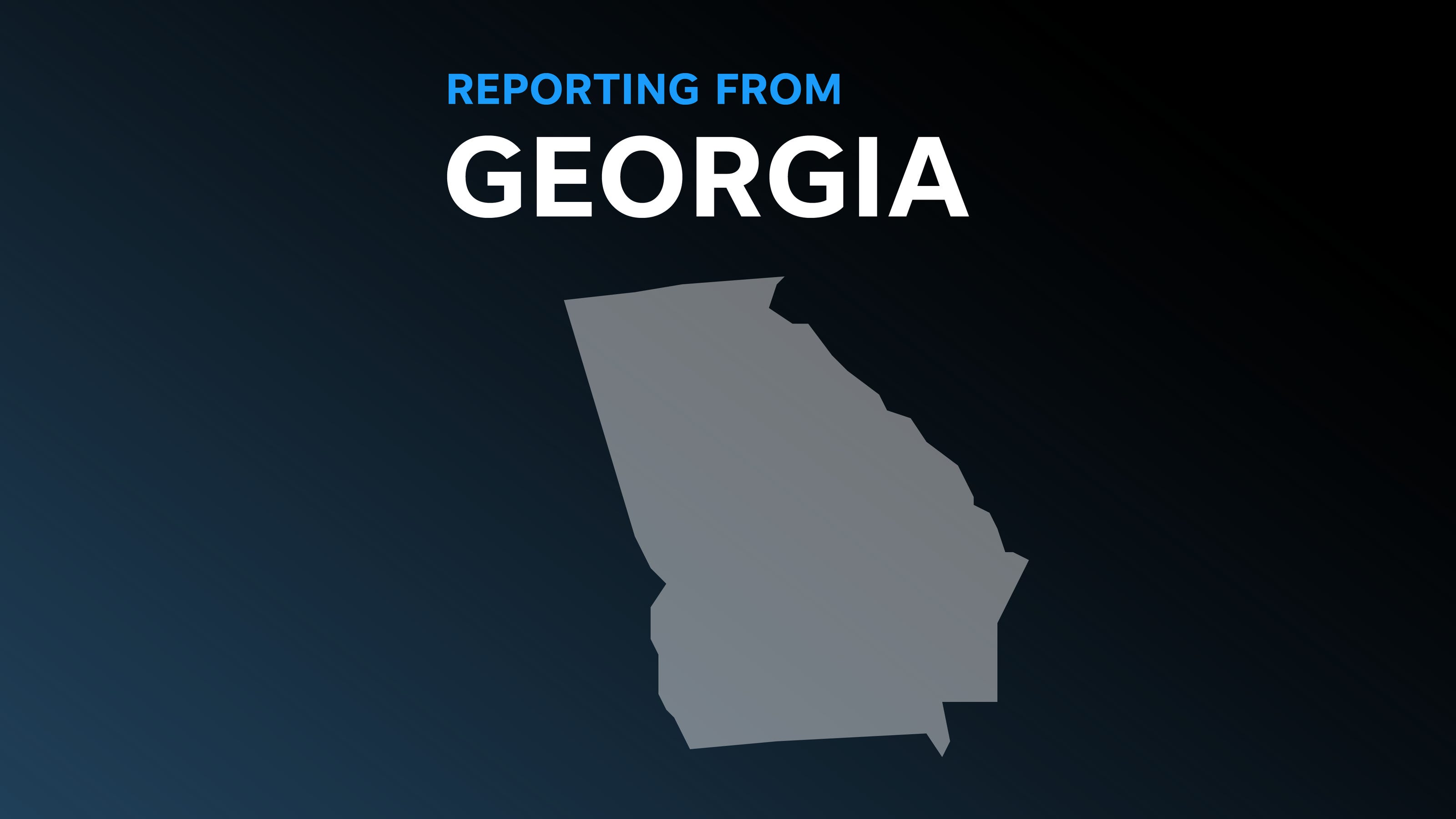
- Federal marshal indicted on felony murder charge in 2016 death of Black Georgia man shot 59 times USA TODAY
- U.S. marshal, Clayton officer indicted in death of man shot 76 times The Atlanta Journal Constitution
- Grand jury indicts 2 law enforcement officers for felony murder in Jamarion Robinson case 11Alive
- Two law enforcement officers indicted in death of man shot 76 times during 2016 raid CBS News
- U.S. Marshal, Georgia Police Officer Indicted In Death Of Man Shot 76 Times HuffPost
- View Full Coverage on Google News

- The Story of Senator Kyrsten Sinema The New York Times
- Sinema confronted in airport for second time this month, ‘Don’t touch me’ Fox News
- Democratic voters giving Senator Kyrsten Sinema an earful 12 News
- Is Arizona's Kyrsten Sinema bad for bisexual Americans? NBC News
- Did Sen. Sinema 'condemn' guests in racist costumes during the wedding she officiated? The Arizona Republic
- View Full Coverage on Google News
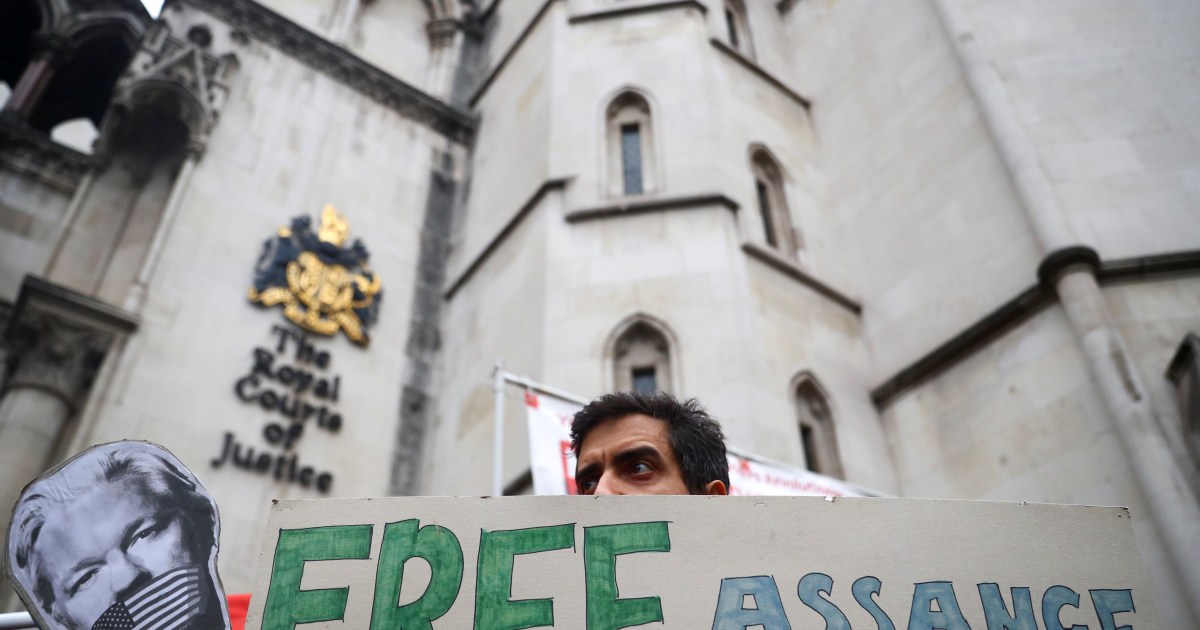
 audio/mpeg 102721news08.mp3
audio/mpeg 102721news08.mp3The post Merrick Garland will appear before Senate panel amid pressure on Nassar probe, Bannon and school boards memo – KAKE first appeared on My News Links.
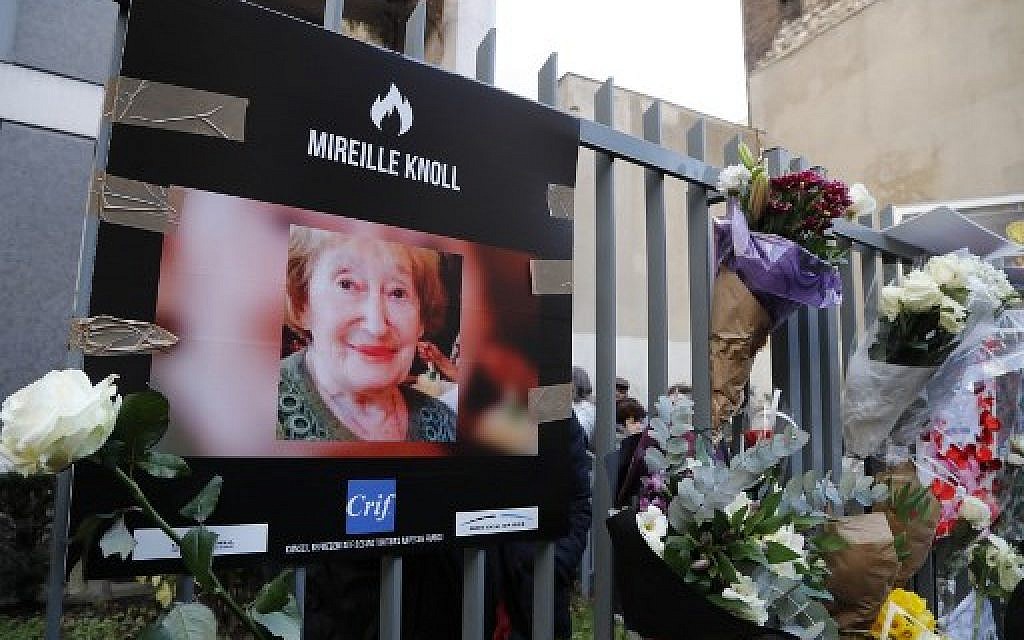
The post Trial opens in murder of French Holocaust survivor first appeared on My News Links.
The post US Considering Israel for Visa Waiver Program – http://hamodia.com first appeared on My News Links.
The post Palestinian convicted of murdering Israeli woman in West Bank forest – Haaretz first appeared on My News Links.
The post Mossad mishap involved Palestinian recruits studying at Turkish universities – Haaretz first appeared on My News Links.
The post Iran sending advanced anti-aircraft batteries to challenge Israel – The Jerusalem Post first appeared on My News Links.
Azerbaijan is set to inaugurate a new airport in Fuzuli, a city liberated from Armenian occupation last year.
Turkish President Recep Tayyip Erdogan and his Azerbaijani counterpart Ilham Aliyev will attend the opening ceremony on Tuesday.
Subscribe: http://trt.world/subscribe
Livestream: http://trt.world/ytlive
Facebook: http://trt.world/facebook
Twitter: http://trt.world/twitter
Instagram: http://trt.world/instagram
Visit our website: http://trt.world
 ДАННОЕ СООБЩЕНИЕ (МАТЕРИАЛ) СОЗДАНО И (ИЛИ) РАСПРОСТРАНЕНО ИНОСТРАННЫМ СРЕДСТВОМ МАССОВОЙ ИНФОРМАЦИИ, ВЫПОЛНЯЮЩИМ ФУНКЦИИ ИНОСТРАННОГО АГЕНТА, И (ИЛИ) РОССИЙСКИМ ЮРИДИЧЕСКИМ ЛИЦОМ, ВЫПОЛНЯЮЩИМ ФУНКЦИИ ИНОСТРАННОГО АГЕНТА
ДАННОЕ СООБЩЕНИЕ (МАТЕРИАЛ) СОЗДАНО И (ИЛИ) РАСПРОСТРАНЕНО ИНОСТРАННЫМ СРЕДСТВОМ МАССОВОЙ ИНФОРМАЦИИ, ВЫПОЛНЯЮЩИМ ФУНКЦИИ ИНОСТРАННОГО АГЕНТА, И (ИЛИ) РОССИЙСКИМ ЮРИДИЧЕСКИМ ЛИЦОМ, ВЫПОЛНЯЮЩИМ ФУНКЦИИ ИНОСТРАННОГО АГЕНТА ДАННОЕ СООБЩЕНИЕ (МАТЕРИАЛ) СОЗДАНО И (ИЛИ) РАСПРОСТРАНЕНО ИНОСТРАННЫМ СРЕДСТВОМ МАССОВОЙ ИНФОРМАЦИИ, ВЫПОЛНЯЮЩИМ ФУНКЦИИ ИНОСТРАННОГО АГЕНТА, И (ИЛИ) РОССИЙСКИМ ЮРИДИЧЕСКИМ ЛИЦОМ, ВЫПОЛНЯЮЩИМ ФУНКЦИИ ИНОСТРАННОГО АГЕНТА
ДАННОЕ СООБЩЕНИЕ (МАТЕРИАЛ) СОЗДАНО И (ИЛИ) РАСПРОСТРАНЕНО ИНОСТРАННЫМ СРЕДСТВОМ МАССОВОЙ ИНФОРМАЦИИ, ВЫПОЛНЯЮЩИМ ФУНКЦИИ ИНОСТРАННОГО АГЕНТА, И (ИЛИ) РОССИЙСКИМ ЮРИДИЧЕСКИМ ЛИЦОМ, ВЫПОЛНЯЮЩИМ ФУНКЦИИ ИНОСТРАННОГО АГЕНТАThe post An important message from Afghanistan! – Global Village space first appeared on My News Links.
The post Those who ignore crime are just as culpable – Examiner Enterprise first appeared on My News Links.
The post Backfires of Left and Right – Splice Today first appeared on My News Links.
The post COVID-19: New ‘Delta Plus’ Variant Being Carefully Monitored, CDC Director Says – Southwest Dutchess Daily Voice first appeared on My News Links.
The post How Concerned Should You Be About AY.4.2. Delta Subvariant? An Expert Explains – ScienceAlert first appeared on My News Links.
General Abdel Fattah #alBurhan, who on Monday dissolved authorities leading #Sudan's transition to democracy, became de facto head of state after the 2019 ouster of strongman Omar al-Bashir and now embodies the possible return to a much-feared #military rule. In a lengthy military career under Bashir, he rose to prominent roles while remaining relatively unknown.
🔔 Subscribe to France 24 now: https://f24.my/YTen
🔴 LIVE - Watch FRANCE 24 English 24/7 here: https://f24.my/YTliveEN
🌍 Read the latest International News and Top Stories: https://www.france24.com/en/
Like us on Facebook: https://f24.my/FBen
Follow us on Twitter: https://f24.my/TWen
Discover the news in pictures on Instagram: https://f24.my/IGen
Two men went on #trial on Tuesday over the 2018 murder of an elderly Jewish woman that provoked protests and alarm in #France about anti-Semitic crime. The partly burned body of #MireilleKnoll, 85, was found in her apartment in central Paris after she had been stabbed 11 times before her home was set on fire.
🔔 Subscribe to France 24 now: https://f24.my/YTen
🔴 LIVE - Watch FRANCE 24 English 24/7 here: https://f24.my/YTliveEN
🌍 Read the latest International News and Top Stories: https://www.france24.com/en/
Like us on Facebook: https://f24.my/FBen
Follow us on Twitter: https://f24.my/TWen
Discover the news in pictures on Instagram: https://f24.my/IGen
#Coronavirus is not going to suddenly disappear and no one is safe until we're all safe. That's the message from Danny Altmann, Professor of #Immunology at Imperial College London, as the northern hemisphere heads into the winter with worries of an explosion of Covid-19 cases. The increase is already being seen in the UK, where case numbers have risen to up to 50,000 a day. We spoke to him about how he thinks the Covid-19 response is going and what could be coming next. #Perspective
🔔 Subscribe to France 24 now: https://f24.my/YTen
🔴 LIVE - Watch FRANCE 24 English 24/7 here: https://f24.my/YTliveEN
🌍 Read the latest International News and Top Stories: https://www.france24.com/en/
Like us on Facebook: https://f24.my/FBen
Follow us on Twitter: https://f24.my/TWen
Discover the news in pictures on Instagram: https://f24.my/IGen
Haiti, synonymous with generational poverty, misrule, and human misery, is reeling from a series of calamities as grave as any the island nation of 11 million people has suffered through. In July gunmen assassinated president Jovenel Moise, whom the opposition had accused of attempting to illegally prolong his term. The political crisis remains unresolved. In August a powerful earthquake killed more than 2,000 people and injured 12,000, recalling the devastating 2010 quake and the ensuing failure of donor relief to rebuild the country. And as the year draws to the close, Port-au-Prince is considered the kidnapping capital of the world as armed gangs operate with impunity. The weak central government is unable to control the gangs in a security vacuum caused by the departure of a U.N. lead peace-keeping force in 2019. In this episode of History As It Happens, historian Alan McPherson, an expert in U.S. foreign relations with Latin America and the Caribbean, discusses the roots of Haiti’s struggles, which date to its founding as the first free Black republic in 1804.
 audio/mpeg HH-081-211026.mp3?dest-id=2566565
audio/mpeg HH-081-211026.mp3?dest-id=2566565
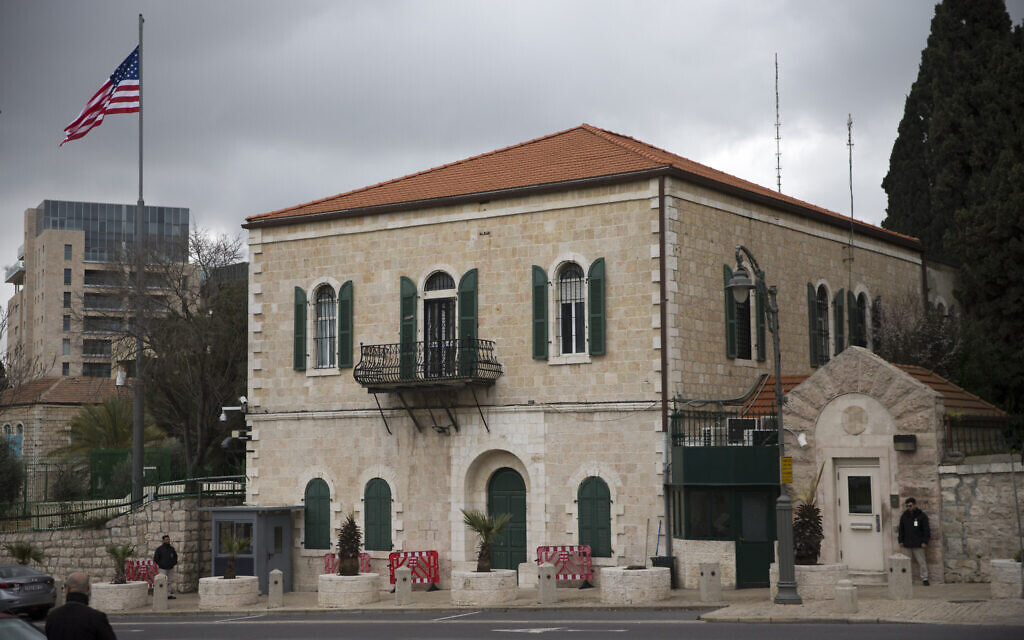
The military in Sudan has staged an apparent coup and detained the prime minister, announcing a state of emergency and dissolving the country's government. NBC News' Raf Sanchez reports tens of thousands are taking to the streets in protest.
» Subscribe to NBC News: http://nbcnews.to/SubscribeToNBC
» Watch more NBC video: http://bit.ly/MoreNBCNews
NBC News Digital is a collection of innovative and powerful news brands that deliver compelling, diverse and engaging news stories. NBC News Digital features NBCNews.com, MSNBC.com, TODAY.com, Nightly News, Meet the Press, Dateline, and the existing apps and digital extensions of these respective properties. We deliver the best in breaking news, live video coverage, original journalism and segments from your favorite NBC News Shows.
Connect with NBC News Online!
NBC News App: https://smart.link/5d0cd9df61b80
Breaking News Alerts: https://link.nbcnews.com/join/5cj/breaking-news-signup?cid=sm_npd_nn_yt_bn-clip_190621
Visit NBCNews.Com: http://nbcnews.to/ReadNBC
Find NBC News on Facebook: http://nbcnews.to/LikeNBC
Follow NBC News on Twitter: http://nbcnews.to/FollowNBC
#NBCNews #Sudan #Coup
 image/jpeg cae74962769c69d39063c2ce037c670e.jpg
image/jpeg cae74962769c69d39063c2ce037c670e.jpg image/jpeg 51b42cc10fbe08693f99094d1f99c9e7.jpg
image/jpeg 51b42cc10fbe08693f99094d1f99c9e7.jpg image/jpeg 81e3b573103a3681b654770f4f3c0e3f.jpg
image/jpeg 81e3b573103a3681b654770f4f3c0e3f.jpgThe Taliban has announced its interim government, and its all-male, often-hardline makeup seems to have confirmed many observers’ worst fears. Why did the US mission in Afghanistan fail, and what is in store for the country under Taliban rule?
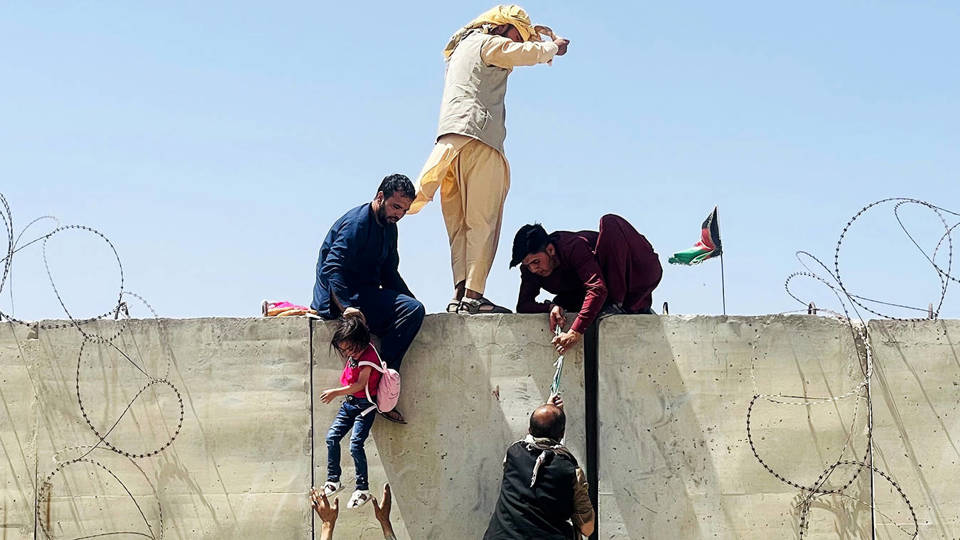
Every senate Republican and at least two senate Democrats continue to assert that Biden’s agenda is too costly. That’s nonsense
This week, Democrats either reach an agreement on Biden’s social and climate agenda or the agenda may shrink into meaninglessness. The climate measures in particular need to be settled before Biden heads to Scotland for the UN climate summit this weekend, so other nations will see our commitment to reduce carbon emissions.
On Sunday, Biden met with key Democrats to work out spending and tax provisions. Yet every senate Republican and at least two senate Democrats continue to assert that Biden’s agenda is too costly.
Robert Reich, a former US secretary of labor, is professor of public policy at the University of California at Berkeley and the author of Saving Capitalism: For the Many, Not the Few and The Common Good. His new book, The System: Who Rigged It, How We Fix It, is out now. He is a Guardian US columnist. His newsletter is at robertreich.substack.com
Continue reading...The global economy is undergoing a digital transformation, but educational systems are lagging in providing the skills students need for the careers of the future. Where should governments turn to develop the programs needed to expand digital literacy and strengthen critical thinking?

 image/jpeg 49649759-0-image-m-26_1635241898718.jpg
image/jpeg 49649759-0-image-m-26_1635241898718.jpgIsrael's Health Minister Nitzan Horowitz donated blood in Jerusalem after the country removed curbs on gay men donating blood.
#Israel #BloodDonation #WION
About Channel:
WION -The World is One News, examines global issues with in-depth analysis. We provide much more than the news of the day. Our aim to empower people to explore their world. With our Global headquarters in New Delhi, we bring you news on the hour, by the hour. We deliver information that is not biased. We are journalists who are neutral to the core and non-partisan when it comes to the politics of the world. People are tired of biased reportage and we stand for a globalised united world. So for us the World is truly One.
Please keep discussions on this channel clean and respectful and refrain from using racist or sexist slurs as well as personal insults.
Subscribe to our channel at https://goo.gl/JfY3NI
Check out our website: http://www.wionews.com
Connect with us on our social media handles:
Facebook: https://www.facebook.com/WIONews
Twitter: https://twitter.com/WIONews
Follow us on Google News for latest updates
Zee News:- https://bit.ly/2Ac5G60
Zee Bussiness:- https://bit.ly/36vI2xa
DNA India:- https://bit.ly/2ZDuLRY
WION: https://bit.ly/3gnDb5J
Zee News Apps : https://bit.ly/ZeeNewsApps
- Covid News: Live Updates The New York Times
- Moderna says COVID vaccine effective in 6 to 11-year-olds CBS News
- New daily cases hits three-month low in North Carolina WITN
- The next vaccine exemption debate: 'My child, my choice' | TheHill The Hill
- Opinion | Why Parents Aren't Vaccinating Their Kids Against Covid The New York Times
- View Full Coverage on Google News
- Japan's Princess Mako: The woman who gave up royal status to marry BBC News
- Japanese princess marries college sweetheart amid controversy CNN
- Princess Mako's Royal Wedding in Japan Goes Off With Little Fanfare The New York Times
- How will Princess Mako's exit affect Japan's royal family? Washington Post
- Japan's former Princess Mako, husband: sad over incorrect reports Reuters
- View Full Coverage on Google News
The White House
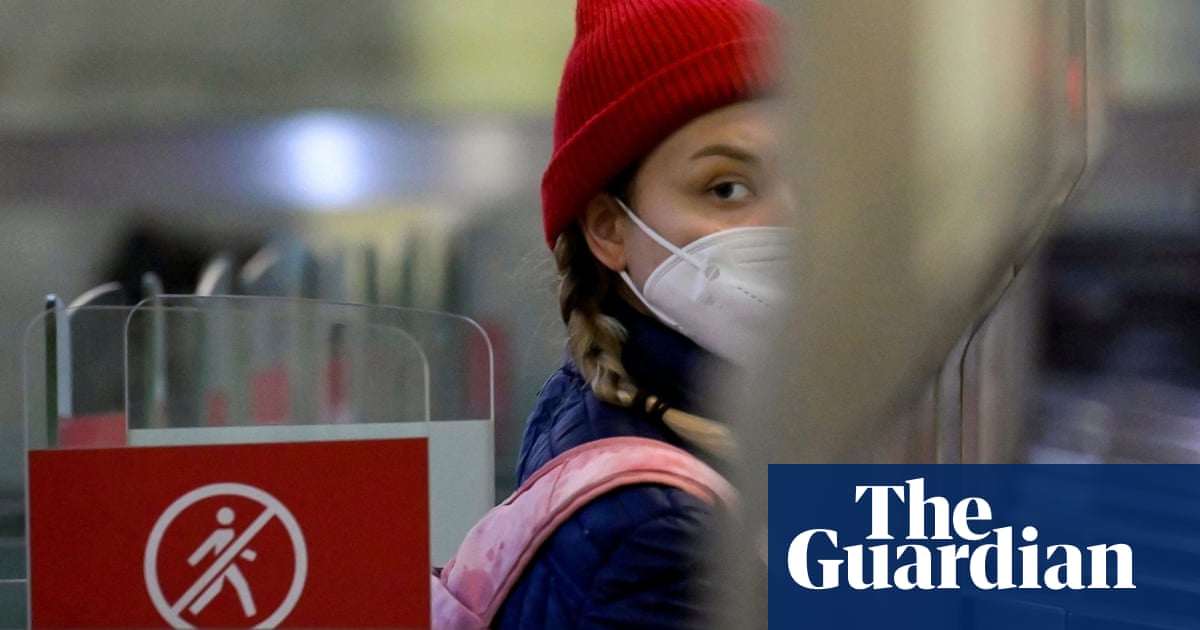
The use of our bodies to unlock access to services raises concerns about the trade-off between convenience and privacy
In a school canteen in Gateshead, cameras scan the faces of children, taking payment automatically after identifying them with facial recognition. More than 200 miles away in North London, staff at a care home recently took part in a trial that used facial data to verify their Covid-19 vaccine status. And in convenience stores around the country, staff are alerted to potential shoplifters by a smart CCTV system that taps into a database of individuals deemed suspect.
In each case, biometric data has been harnessed to try to save time and money. But the growing use of our bodies to unlock areas of the public and private sphere has raised questions about everything from privacy to data security and racial bias.
Continue reading...Download audio: https://play.podtrac.com/npr-500005/edge1.pod.npr.org/anon.npr-mp3/npr/newscasts/2021/10/26/newscast070836.mp3?awCollectionId=500005&awEpisodeId=1049237911&orgId=1&d=300&p=500005&story=1049237911&t=podcast&e=1049237911&size=4500000&ft=pod&f=500005
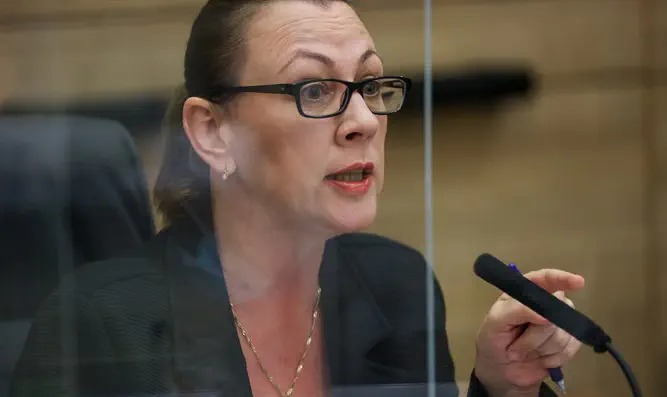
The explosion caused by a gas leak took place in Naberezhnye Chelny, Tatatstan region, Russia. Russian EMERCOM reports 4 people were injured.
#news #trending #currentevents
--------------------------------------------------------------------------------------------------
Freedom over censorship, truth over narrative.
Follow us on Facebook: https://www.facebook.com/RTnews
Follow us on TikTok: https://www.tiktok.com/@rt.news
Follow us on Telegram: t.me/rtnews
Follow us on Twitter: https://twitter.com/RT_com
Шавкат Мирзиёев победил на выборах президента Узбекистана. Он набрал более 80% голосов избирателей. Центризбирком озвучил пока только предварительные результаты, но уже объявил узбекистанского лидера победителем.
В афганском Герате в ходе столкновений погибли как минимум 17 человек. Среди них есть женщины и дети.
#выборы #Узбекистан #Афганистан

Политилог Аббас Галлямов уверен, что "в нынешней ситуации Путин не может никаким другим образом удерживать власть, кроме как за счет силы, поэтому сейчас режим становится все более и более брутальным, репрессивным, жестоким". Полную версию интервью смотрите здесь https://youtu.be/Hydj9M9bDpI.
Подпишитесь на канал Радио Свобода http://bit.ly/2vQLCnh
Включите уведомления о новых видео, нажав на значок колокольчика.
#репрессии #Путин #протесты

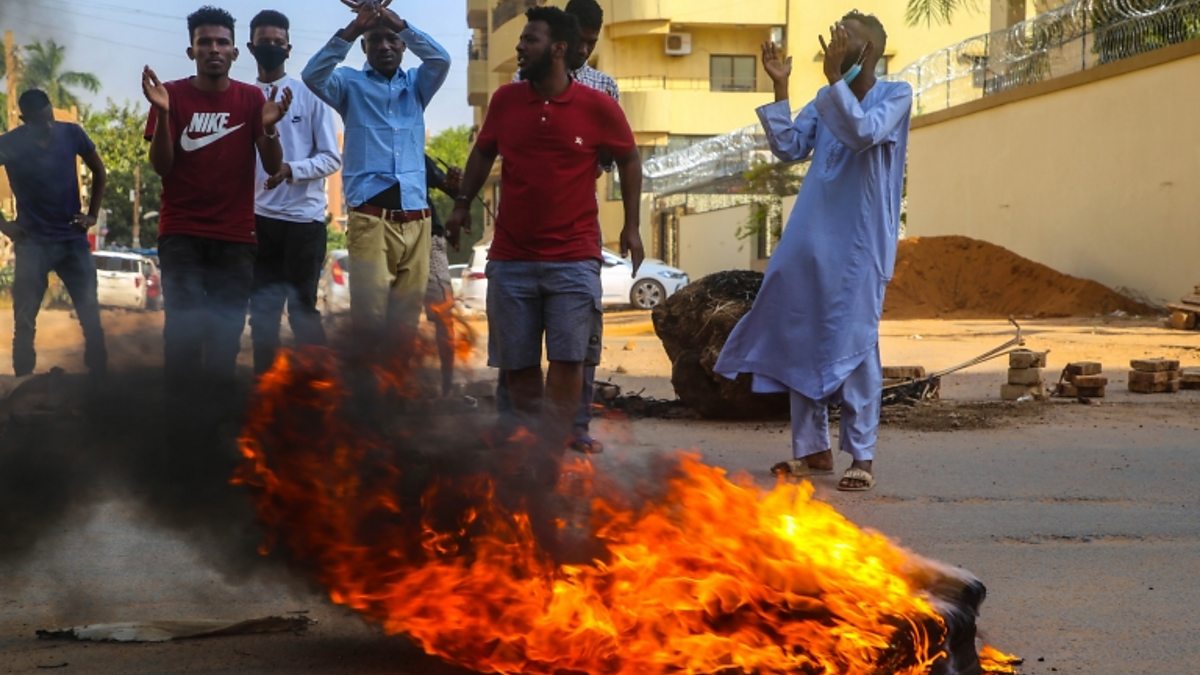
 audio/mpeg p0b05mx8.mp3
audio/mpeg p0b05mx8.mp30:00 - В нескольких регионах России вступили в силу коронавирусные ограничения. Вместе с тем заболеваемость побила новый рекорд. А власти говорят, что пик осенней волны еще не достигнут.
13:44 - 17 американских СМИ опубликовали расследование о работе Facebook. В нем говорится, что соцсеть может использоваться для слежки за диссидентами, а Instagram вызывает суицидальные мысли у детей.
17:56 - Жизненные показатели Саакашвили упали до критического уровня минувшей ночью, – говорит адвокат. Глава Минздрава Грузии заявила, что тюремная больница готова принять экс-президента.
20:18 - Польша отправит на границу с Беларусью еще 2,5 тысячи солдат – следить за тем, чтобы в страну не проникли мигранты. Люди неделями находятся в приграничной полосе. Некоторые штурмуют забор на границе.
#Путин #FacebookPapers #НастоящееВремя
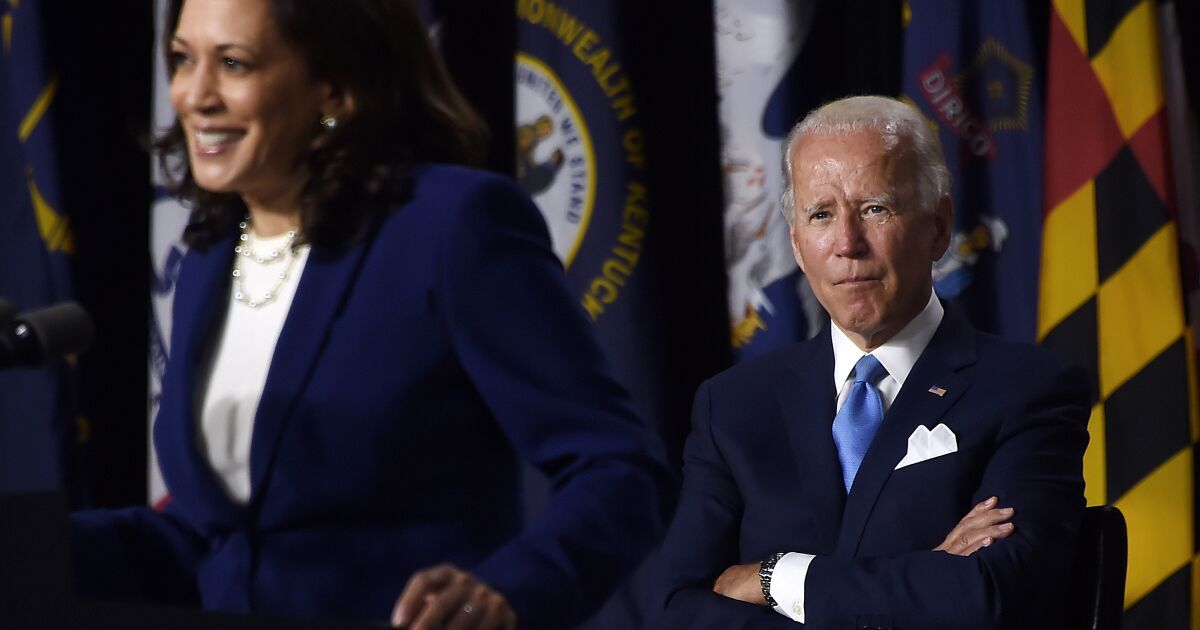

















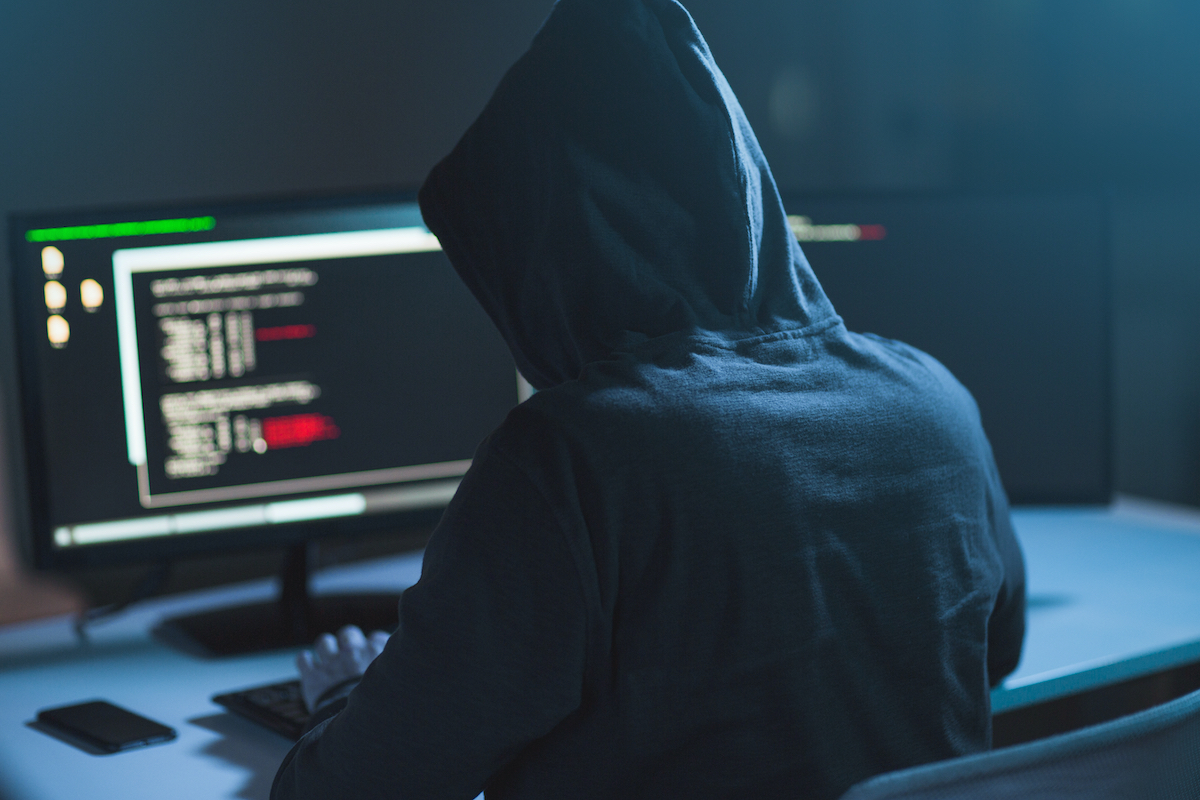

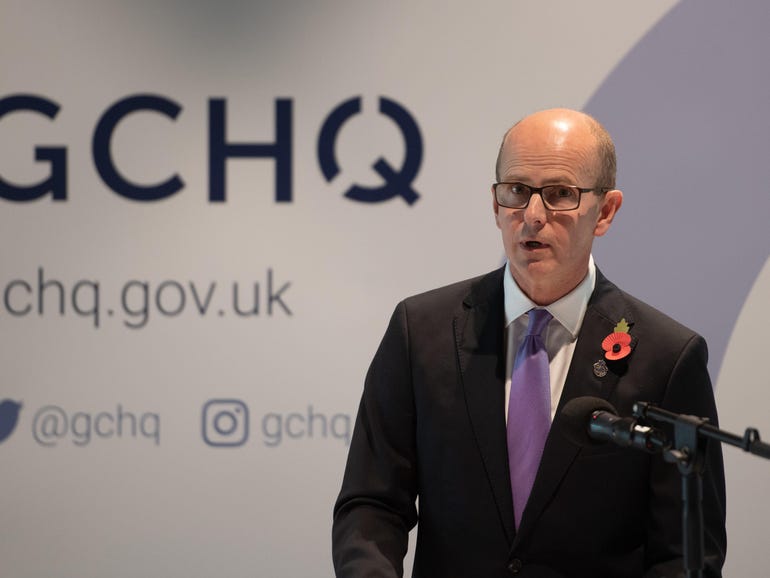


Comments
Post a Comment